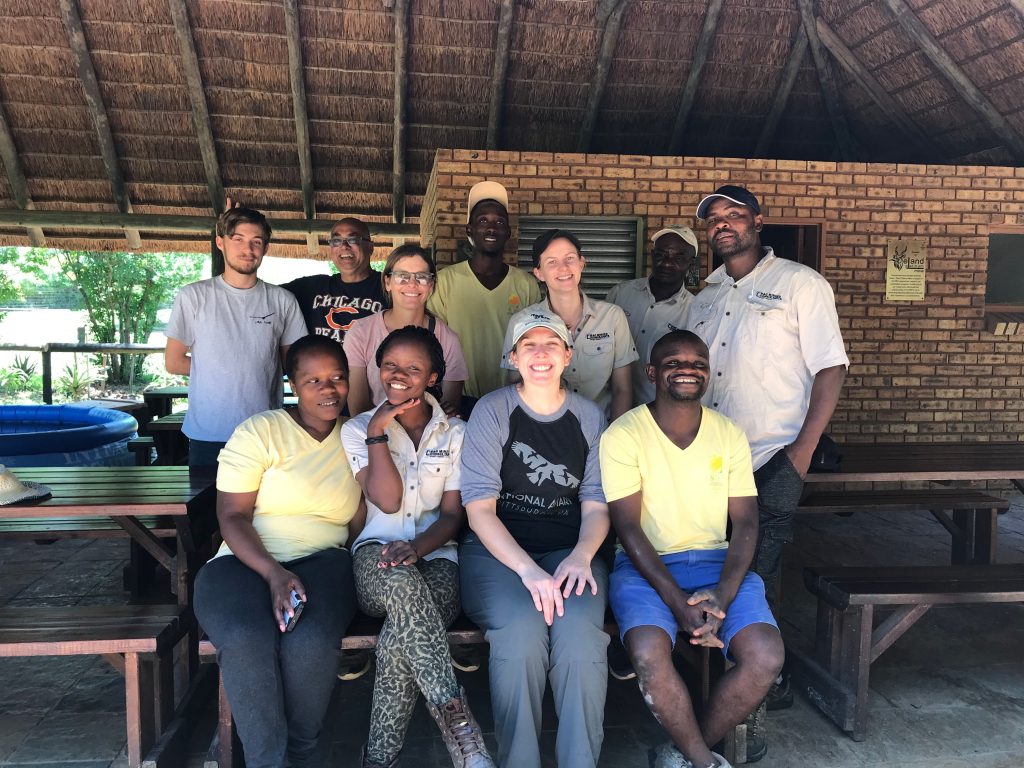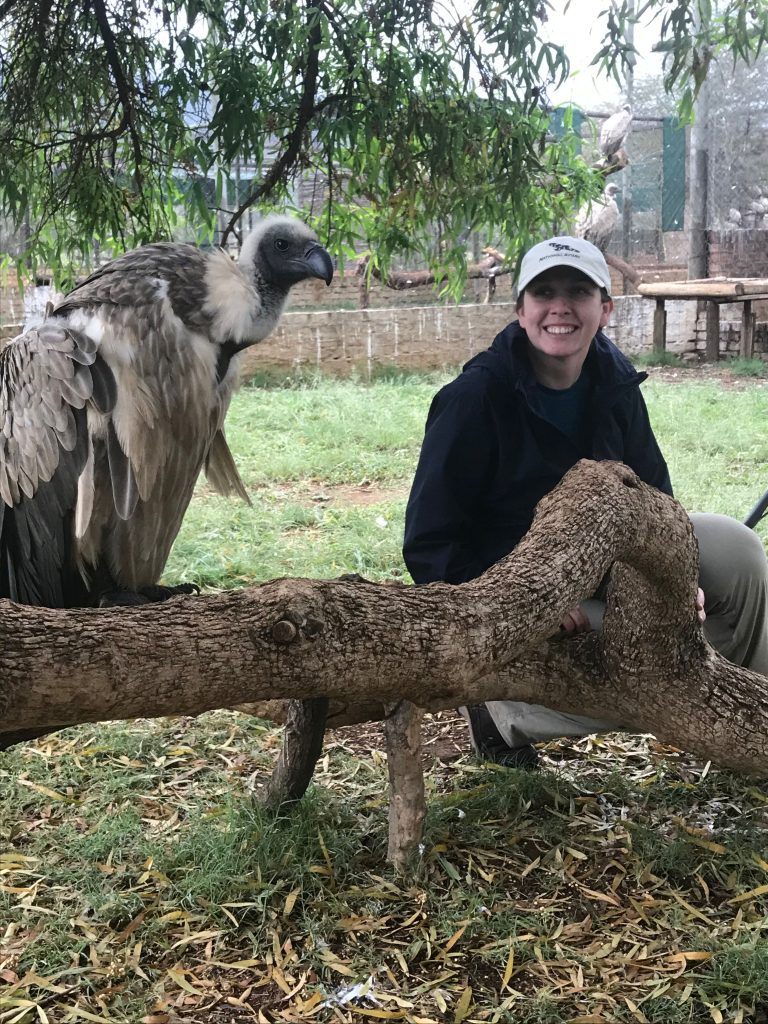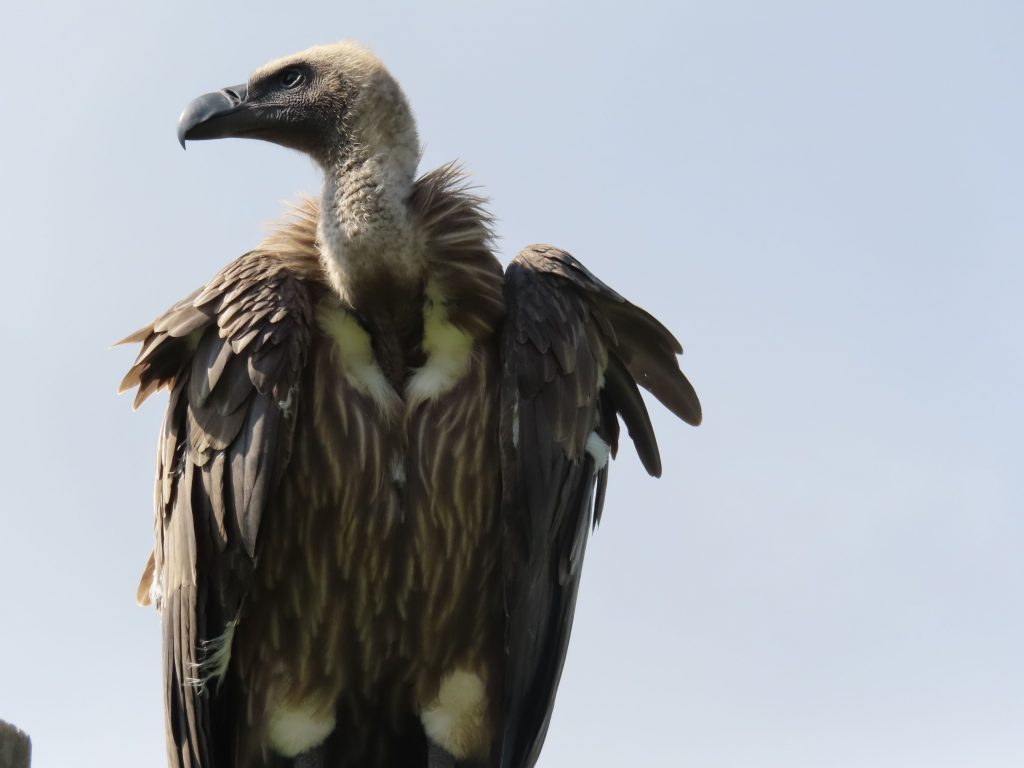When the call came in that a concerned South African citizen had found two vultures down on the ground, unable to take off, Jenny Walsh sprang into action. As the birds were brought in, Jenny looked them over, assessing for injuries. One bird was very thin—she observed its lack of coordination while walking. A blood test revealed high lead levels, likely from eating carrion shot with lead bullets. The vulture was treated immediately for lead poisoning.
Jenny is the Manager of Behavioral Husbandry and Training for the National Aviary. She has a special fondness for vultures, working with the National Aviary’s flock of Black Vultures, Hooded Vultures, King Vultures, and Palm-nut Vultures.

Where most people see a misunderstood creature, closely associated with carrion, Jenny sees beautiful birds that fulfill a critical role in the ecosystem as “nature’s recyclers.” It was this love of vultures that inspired Jenny to fly from Pittsburgh to South Africa, where she spent two weeks working with Vulpro, a rehabilitation and conservation center with a mission of saving African vultures.
Jenny’s time at Vulpro was intense, hands-on, and rewarding. She began her mornings preparing meals for the vultures from meat donated by local farms. She experienced rescues and emergency triage, aiding vultures that have taken ill or been injured. Working with veterinarians, Jenny assisted in gathering blood samples for a research project studying the nutritional needs of Cape Vultures for healthy offspring development.

Vulture populations are declining around the world for a variety of reasons. Vultures are vulnerable to collisions with power lines, which can be hard to see and navigate, especially for a vulture fledgling. That’s what happened to Ayla, a petite African White-backed Vulture who is a permanent resident at the center. Jenny bonded with the bird, who had lost a wing in a power line collision. Vulpro works with local municipalities to fix existing power lines so they are safer for soaring vultures, and uses research to recommend power lines that could be adjusted to better serve humans and vultures alike.
Lead poisoning—both accidental and intentional—can lead to death, and because vultures feed in packs, one lead-filled carcass can kill many at once. This is what happened to the thin vulture who tested positive for lead poisoning. Vultures are also targeted by poachers. Large groups of vultures circling can draw attention to poached animals, and poachers sometimes intentionally poison carcasses in order to cover their tracks and avoid detection.

Ensuring vultures have quality food is an important part of conservation efforts. That’s why Jenny also honed her culinary skills by supplying food to the onsite vulture restaurant, a safe place where vultures living in wild habitats can come and feed on carcasses put out on a regular basis. At one site, Jenny was able to see an incredible sight: 30 vultures feeding at the restaurant.
Donate“Watching them fly off as we approached was indescribable. After we stocked the restaurant, I set up a camera here for Vulpro. It takes pictures of any animal visiting the restaurant, which helps Vulpro monitor vulnerable populations to identify population declines. Later in the week I learned vultures came and finished off the food only hours after we left. I was excited to see from the pictures that my hard work was supporting these birds and their young.”
Jenny Walsh
